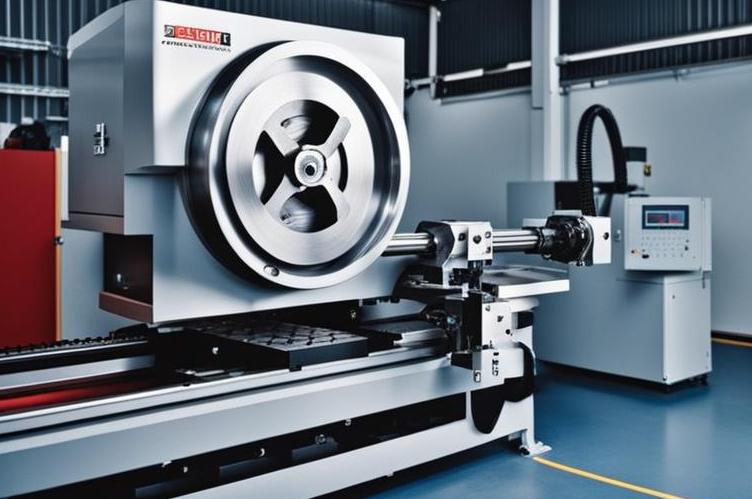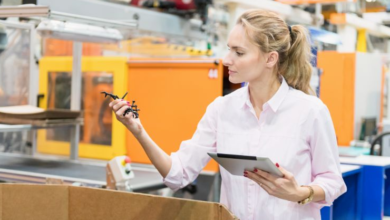
Advancements in CNC Swiss Machineing for Modern Manufacturing
Understanding CNC Swiss Machineing
CNC swiss machineing is a specialized machining process designed to create high-precision, small components efficiently. Unlike conventional turning, CNC swiss machineing supports the material close to the cutting tool, reducing deflection and improving accuracy. This process is crucial in industries where precision and repeatability are essential, including medical, aerospace, and electronics manufacturing.
Key Features of CNC Swiss Machineing
Sliding Headstock Design
A sliding headstock is the main feature that sets CNC swiss machineing apart. The workpiece moves longitudinally while the cutting tool performs operations. This design allows for machining slender and intricate components that would be difficult to produce using traditional lathes.
Multi-Axis Operation
Modern CNC swiss machines often feature multi-axis capabilities, allowing simultaneous turning, milling, and drilling. This reduces production time and enhances the versatility of the components produced.
Automated Tooling
CNC swiss machineing incorporates advanced tools and automatic tool changers, minimizing manual intervention. This ensures consistent quality and makes the process suitable for high-volume production.
Benefits of CNC Swiss Machineing
High Precision and Consistency
The close support of the workpiece and computer-controlled operations in CNC swiss machineing ensures extremely high accuracy. Manufacturers can produce components within tight tolerances, reducing the need for rework.
Efficient Production Process
By combining multiple operations in one setup, CNC swiss machineing improves efficiency and productivity. This efficiency is vital for industries with demanding schedules and high production requirements.
Material Versatility
CNC swiss machineing can process a variety of materials, including stainless steel, aluminum, titanium, brass, and engineering plastics. This adaptability allows manufacturers to cater to diverse industrial needs.
Reduced Production Costs
Despite the initial investment in CNC swiss machineing the reduction in material waste, labor costs, and secondary operations makes this technology cost-effective in the long run. High precision machining also reduces defective parts.
Selecting the Right CNC Swiss Machineing Provider
Expertise and Experience
A provider with experience in CNC swiss machineing can optimize the process, select appropriate materials, and ensure the highest quality outcomes for complex components.
Advanced Equipment
Providers with up-to-date multi-axis CNC swiss machines and automated systems can handle complex parts efficiently, ensuring productivity and consistent quality.
Quality Control
A reliable provider uses rigorous inspection and measurement methods to ensure that all components meet the required specifications and surface finish standards.
Flexibility and Timely Delivery
Experienced providers can manage urgent orders, accommodate design modifications, and adjust production schedules without compromising quality or timelines.
See also: How Technology Is Revolutionizing Traditional Education
Applications of CNC Swiss Machineing
Medical Devices
CNC swiss machineing is extensively used in producing surgical instruments, implants, and diagnostic tools, offering the precision required for medical applications.
Aerospace Components
The aerospace industry relies on CNC swiss machineing for lightweight, precise engine and structural components that must adhere to strict tolerances.
Automotive Parts
Engine parts, fuel system components, and intricate assemblies in the automotive industry are manufactured using CNC swiss machineing to ensure reliability and consistency.
Electronics Manufacturing
CNC swiss machineing produces small electronic components, connectors, and housings with high precision, making it ideal for micro-engineering applications.
Recent Trends in CNC Swiss Machineing
Integration with Automation
Automated systems paired with CNC swiss machineing improve productivity and consistency, reducing human intervention in high-volume production environments.
Hybrid Manufacturing
Combining additive manufacturing with CNC swiss machineing enables the creation of complex internal geometries, reduces waste, and expands design possibilities.
Sustainable Practices
Energy-efficient machines and the use of eco-friendly materials are increasingly being incorporated into CNC swiss machineing processes to promote sustainability.
Digital Process Optimization
Simulation and digital twin technology help manufacturers optimize CNC swiss machineing processes before production, reducing errors and improving efficiency.
Conclusion
CNC swiss machineing plays a crucial role in modern precision manufacturing, offering unmatched accuracy, efficiency, and material versatility. Industries such as medical, aerospace, automotive, and electronics rely on this technology for producing small, intricate, and high-quality components. By choosing experienced providers with advanced equipment, strict quality control, and flexible production capabilities, manufacturers can achieve consistent, cost-effective, and precise outcomes. CNC swiss machineing continues to drive innovation and set new standards for precision manufacturing.




